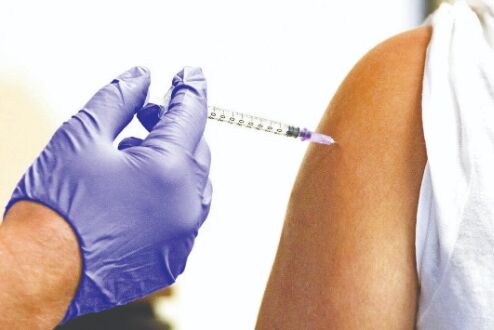New Covid variant Omicron 'not a disaster': UK scientist

London: The new potentially highly-transmissible variant of COVID-19, named Omicron by the WHO, is not a disaster as vaccines are still likely to protect against the serious disease from it, a UK scientist, who advises the government, said on Saturday.
Professor Calum Semple, a microbiologist from the UK government's Scientific Advisory Group for Emergencies (SAGE), struck a note of caution on the worldwide headlines around the new B.1.1.529 variant detected in South Africa.
The UK imposed travel restrictions on six southern African countries South Africa, Botswana, Lesotho, Eswatini, Zimbabwe and Namibia as health authorities said that they are investigating the most significant variant which could be potentially more infectious and vaccine-resistant.
"This is not a disaster, and the headlines from some of my colleagues saying 'this is horrendous' I think are hugely overstating the situation, Professor Semple told the BBC.
Immunity from vaccination is still likely to protect you from severe disease. You might get a snuffle or a headache or a filthy cold but your chance of coming into hospital, or intensive care or sadly dying are greatly diminished by the vaccine and still will be going into the future," he said.
The new Omicron variant was first reported to the World Health Organisation (WHO) from South Africa on Wednesday and has also been identified in Botswana, Belgium, Hong Kong and Israel.
Countries around the world are currently racing to introduce travel bans and restrictions on southern African countries in an effort to contain Omicron's spread.
Semple said that while it may not be possible to stop the variant coming to the UK, it is still important to delay its arrival.
"If you can slow the virus coming into your country, it gives you more time for your booster campaign to get ahead of it. It also gives the scientists longer to understand more about the virus in case there is anything we really should be worrying about," he said.
Meanwhile, a vaccine expert believes it is extremely unlikely that the new Omicron variant will trigger a major new wave of the COVID-19 pandemic in the UK.
Professor Andrew Pollard, the director of the Oxford Vaccine Group, said it is too early to be certain whether the new variant will be able to evade current vaccinations, something unlikely to be known for up to three weeks.
But he said that most of the mutations in Omicron are in the same parts of the spike protein as those in the other variants that have emerged.
At least from a speculative point of view, we have some optimism that the vaccine should still work against a new variant for serious disease, but really we need to wait several weeks to have that confirmed. It's extremely unlikely that a reboot of a pandemic in a vaccinated population like we saw last year is going to happen, said Professor Pollard.



